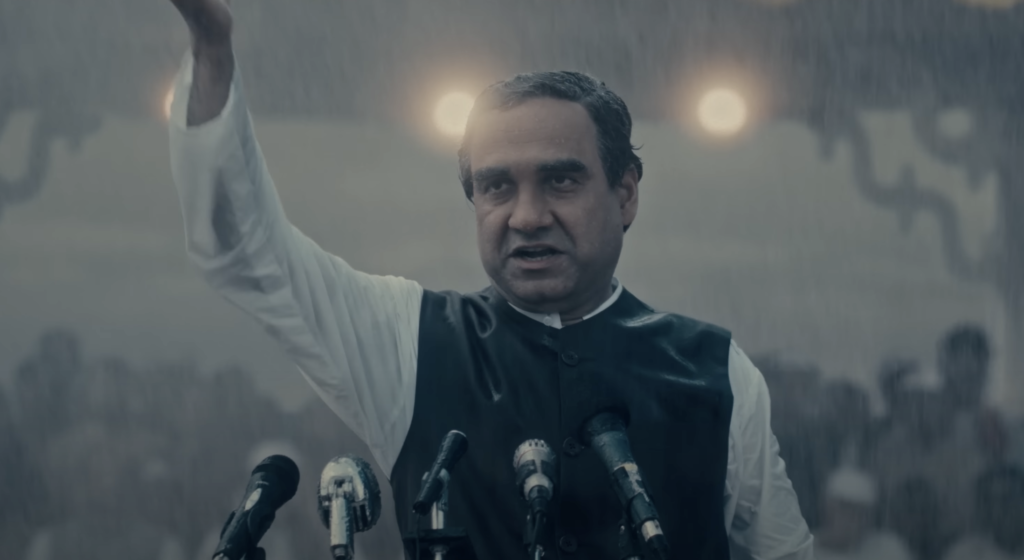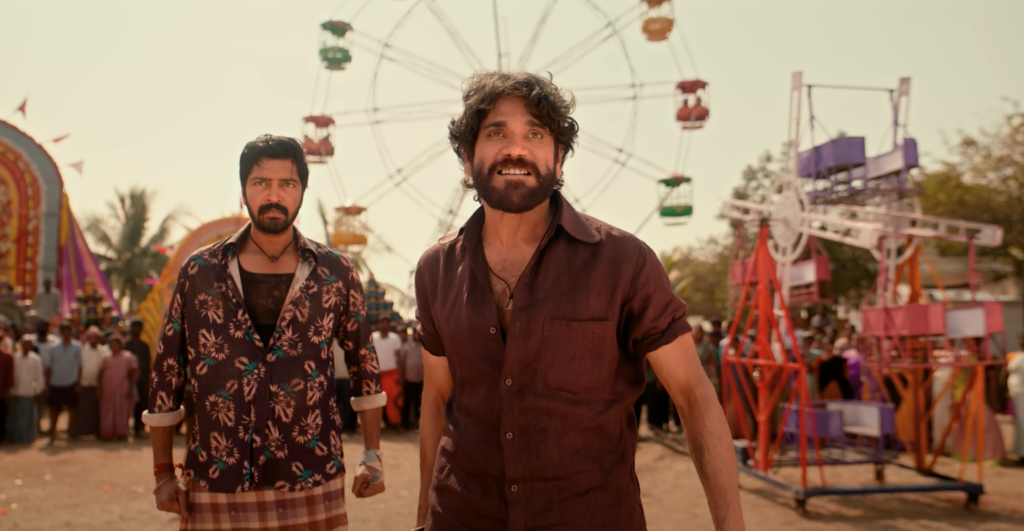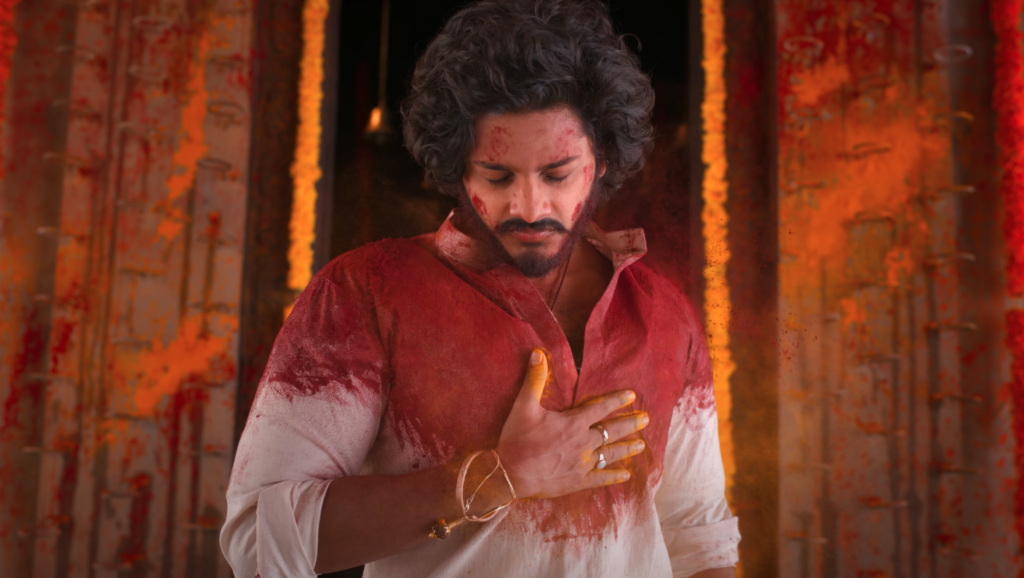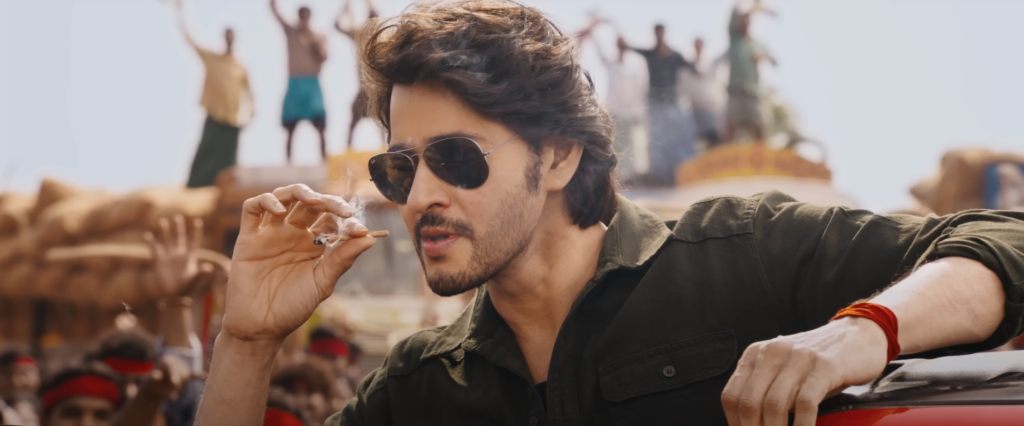Hindi Movie Review: Fighter is another top-notch blockbuster crowd-pleaser from Siddharth Anand and Hrithik Roshan

Much like its clear source of commercial inspiration, Top Gun: Maverick, Siddharth Anand’s Fighter knows how to play to audience tastes with filmmaking that’s skillful and self-aware enough that it never feels pandering in an icky way. And while it may be playing in the same sandbox as the Tom Cruise megahit, it entirely justifies its own existence, strongly executing each genre component of its masala mashup (drama, action, romance, buddy ensemble). From very early on in the movie, we know exactly how it is going to end, but that doesn’t make us any less engaged by what it’s dishing out. Fighter is perfectly calibrated popcorn entertainment.
Co-writer/director Anand brought us last year’s Pathaan and 2019’s War, and he once again proves himself to be one of Bollywood’s cleanest commercial craftsmen. That might seem like a backhanded compliment, insofar as it implies a “sanitized” body of work aimed at the widest audience possible. But I mean it as a sincere commendation: it isn’t easy to consistently deliver movies catering to mass tastes that retain their elegance and their vitality. This achievement was a big part of what made Top Gun: Maverick such a big worldwide word-of-mouth sensation, and Anand is able to achieve the same feat in his films. Yes, they follow the expected beats, but they do so in a way that reminds us of why the beats exist in the first place.
Malayalam Movie Review: Malaikottai Vaaliban offers rousing action and visual references to push past wobbly drama, unsatisfying ending

Malaikottai Vaaliban begins with a strong evocation of the spaghetti Western, but its genre influences certainly do not stop there. (Somewhat peculiarly, it’s the second Indian film of the month to pay homage to the ’60s-born subgenre, following Captain Miller.) This is a movie steeped in visual references, made by a director (Lijo Jose Pellissery) whose love for international cinema overflows each frame. There are also several sequences that vividly recall both samurai and wuxia films, not just in terms of story content, but film language. Many recent Indian movies have felt like something Quentin Tarantino might have cooked up in terms of their stories, characters, and depictions of violence, but Malaikottai Vaaliban is the first that recalls Tarantino in the way that it fully leverages composition, color, and sound to create a subversive tribute to beloved films of the past.
The story itself is simple: a few hundred years ago, Malaikottai Vaaliban (played by Mohanlal, icon of Malayalam cinema) is a vagabond warrior who travels from one village to the next to challenge the strongest fighter they each have. Possessing both gravity-defying strength and delicate action finesse, he has never lost a match. Even though Vaaliban could easily use his might to reign over one of these towns for years to come, he chooses to simply celebrate each victory for an evening and beds a new woman before moving on, as though staying in motion is his sole moral obligation. His only two fellow travelers are his mentor and adoptive father Ayyanar (played by Hareesh Peradi) and Ayyanar’s son Chinnappayyan (played by Manoj Moses). Well, that is until Chinna finds a woman of his own, whom he can’t bear to abandon; suddenly the whimsical Jamanthipoovu (played by Katha Nandi) is along for the ride as well.
Hindi Movie Review: Main Atal Hoon is a hagiographic, overly simple biopic elevated by a strong lead performance

I entered Main Atal Hoon knowing just the basics of the political legacy of Indian Prime Minister Atal Bihari Vajpayee, and I left the movie only barely more educated on him. Sure, over the course of nearly two-and-a-half hours, the film takes viewers through the major beats of Vajpayee’s life – from childhood to just before his death – and captures some of the defining moments of his ascent to PM and his six years in office. But this is a quintessential example of a political biopic that aims less to examine the nuanced views, policy positions, and implementation strategies of its subject and his team, and more to simply reinforce that he was an amazing leader who forged his own path. This is pure hagiography for the fans; if you want to really learn about what made Vajpayee such a force in Indian politics, you are better off using the same amount of time reading Internet sources.
I’m far from opposed to biopics that exist mainly to celebrate the life and work of an icon, but there has to be some substance to the celebration. Main Atal Hoon may cover a lot of ground, but it never really gives the viewer all that much insight into Vajpayee’s motivations to lead or why he held the values he did. The film often shows us how incredibly strong he is in his convictions, devoting his life to the Sangh as a young man, but it doesn’t give us much of the why behind said convictions. Sure, we get a fairly paint-by-numbers depiction of British rule in India and some hints of Hindu spirituality, but little more. By not adequately illuminating the origins of the man’s beliefs, the film narrows its audience to only those who accept that such beliefs are wonderful at face value.
Telugu Movie Review: Naa Saami Ranga is an electric cocktail of family and village drama, propelled by Nagarjuna’s charisma

Shakespearean family drama abound in Naa Saami Ranga, though that’s not to say the film ever becomes unbearably tragic. Don’t get me wrong, there are some incredibly intense plot developments, as well as some devastating fates that characters would certainly have preferred not to have suffered. But at its essence, this is an energetic, pleasurable spectacle – a play on Shakespearean character dynamics that doesn’t necessarily carry the same tone over. It’s very early in the year yet, but for now, Naa Saami Ranga stands out as the most consistently entertaining attempt at a “mass appeal” film in 2024.
The directorial debut of longtime choreographer Vijay Binni, the film is brimming with musicality – and not just in the solid song-and-dance numbers. Even the most dialogue-heavy scenes carry a certain propulsive energy to them, which feels like a direct byproduct of Binni’s extensive experience in staging and presenting Tollywood stars. Sometimes, a movie just feels and moves differently than most of the other films in the marketplace, and it’s hard to put your finger on exactly why. Na Saami Ranga fits this description, and the credit goes to Binni.
Telugu Movie Review: Saindhav is watchable in spite of its gangster cliches, thanks entirely to lead Venkatesh

Saindhav is an amalgamation of a lot of the major tropes in today’s Telugu cinema: a reformed hero with a dark past, a close-knit father and young daughter mourning the loss of Mom, an unstable gangster underworld brimming with power struggles, a backdrop of global terrorist threats. For the most part, the movie doesn’t even try to elegantly weave all of these disparate elements together; it combines them in as easy and efficient a manner as it possibly can. The script is lazy, and much of the finished film’s construction is as well. But Venkatesh is so good at selling this sloppily-written mess in his lead performance that – at least for a while – the movie holds together well enough to keep the audience’s attention.
In his prior life as a gangster henchman, our hero used to be called “SaiKo,” as in psycho – an early “reveal” that the movie initially seems to be protecting, despite it being patently obvious that the name Saindhav Koneru would be cleverly abbreviated in this way. Saindhav swore off his life of crime around the time of his wife’s death, which has left him raising their young daughter Gayathri (played by Ssara Palekar) as a single dad. He’s now a humble crane operator at the local port. But Saindhav’s past can’t help but come back to haunt him, as two tragedies simultaneously unfold. First, Saindhav’s past associates begin supplying local kids with weapons, recruiting them for terrorist groups, crossing a redline he had set when he left the organization. Second, Gayathri is diagnosed with the rare disease SMA (spinal muscular atrophy), requiring a life-saving injection that costs ₹17 crores, an exorbitant sum that no simple crane operator could ever afford.
Telugu Movie Review: Hanu Man offers a winning superhero saga for kids, but it’s a less compelling choice for adults

Every so often, I encounter a new movie that I wish I could show my 8-year-old self. Hanu Man is the latest example. The boy who ate up juvenile fare like 1995’s Mighty Morphin Power Rangers: The Movie and 1998’s Godzilla would have absolutely adored this light-as-a-feather superhero origin story, even as his reading level likely would have made the subtitles a challenge. At 34, I wasn’t immune to Hanu Man’s playful charms, but I could only invest so much in an odyssey this simple and silly. If you have kids ages 7-12 who are up for a Telugu language adventure, it’s a must-see for the family; others may develop that sinking “this just isn’t made for me” feeling as the movie progresses.
The best family films, of course, are able to drive equal levels of investment among parents and kids, simultaneously speaking to both on their own unique levels. This requires an unassumingly high amount of filmmaking skill. Hanu Man is not one of these movies; it builds a logic-defying world that only those without fully-developed frontal lobes will be able to fully immerse themselves in. You’re bound to approach the movie from a certain distance if you’ve already made it into adolescence; its childishness is readily apparent early on, though not until after a pretty audacious prologue sequence. Granted, Hanu Man should still strike adults as a likable and amiable piece of family-friendly filmmaking, but perhaps better as a babysitter than as a personal source of entertainment.
Tamil Movie Review: Captain Miller burns down the British Raj with invigorating genre movie pastiche

A down-and-dirty genre picture with a hearty helping of historical resonance, Captain Miller reminds us what “hard-boiled” really means in the context of action filmmaking. For those who thought last year’s Sisu was just a little too tame and cutesy in its creative interpretation of 20th Century history: have I got a movie for you. Unrelenting to the point of madness, this is as pulpy and savage as I’ve ever seen a cinematic glorification of Indian resistance against the British Raj. It makes RRR look like a superhero dress-up party.
After a brief prologue, the film opens like an Indian take on the Western genre, complete with Wanted posters for its titular outlaw, Eesa AKA Captain Miller (played by Dhanush). Miller and his gang actively take on the British battalions responsible for ongoing atrocities in the local village and surrounding areas. In the beginning, with Miller largely shrouded in mystery, this feels like simple vigilante justice operating as a form of political resistance.
But as in most strong genre movies, there’s more lore to be explored than first meets the eye. Co-writer/director Arun Matheswaran delves into the extended backstory of Eesa with real finesse; the film progressively builds upon its propulsive energy, without the amount of time spent in “flashback” mode coming across as a chore. We learn that Eesa was originally assigned the name of “Miller” when he signed up for the British army, a short-lived enlistment that ended abruptly when he and his fellow Indian soldiers were painstakingly forced to massacre their countrymen protesting the British rule. From that day on, “Miller” charted a new course.
Telugu Movie Review: Mahesh earns his paycheck in the otherwise underwhelming Guntur Kaaram

Moviegoers who buy a ticket to Guntur Kaaram chiefly because they are fans of Mahesh Babu will get what they paid for, if not much more. The star is effortlessly charismatic in the lead role of Veera Venkata Ramana, the long-disowned son of a political dynasty whose childhood trauma turned him into a delightful smartass of an adult. The film chiefly focuses on Ramana’s (ex-)family’s attempt to get him to sign a contract formally disassociating from them, which is tied to shifty political maneuvering by his grandfather Venkata Swamy (Prakash Raj) as his mother Vasundhara (Ramya Krishnan), who walked out on Ramana as a child, is appointed as an MP. With a different lead actor, this story could have quickly descended into a cut-rate Shakespearean soap opera, but Mahesh approaches his character with such a light touch that his antics in resisting the contract are always fun and often very funny. Especially in the first half, it’s a pleasure to watch Ramana evade the signing process, even though it gets repetitive.
Not only is Mahesh charming and funny in the role, he’s also more than capable as both a dancer and an action hero, even though the film overall comes up a bit short in both departments. The fact that Guntur Kaaram marks Mahesh’s reunion with writer/director Trivikram Srinivas – their third collaboration together, coming 13 years after their last (Khaleja) – is certainly being hyped up by the press and the film’s publicity campaign. But it would be hard to argue that Trivikram provides his film nearly the same amount of juice that Mahesh does. Not only is the movie’s story itself something of a disappointment – we’ll get into that in just a moment – but the filmmaking feels pretty lazy. The action set-pieces are only memorable because of Mahesh’s swagger as the fun-but-still-menacing-enough Ramana, not because of any editing or staging choices, all of which feel very dated. The same goes for the musical numbers, which would be total snoozes if not for the raw energy of Mahesh and romantic co-star Sreeleela, who can seemingly thrust her hips faster than any other living human.

